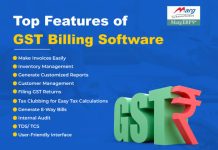Introduction
Goods and Services Tax (GST) is a comprehensive indirect tax on goods and services that were implemented in India on 1st July 2017. The introduction of the GST was aimed at creating a unified tax system for the country, eliminating the cascading effect of multiple taxes, and promoting ease of doing business. However, the petroleum sector in India was kept outside the purview of GST, and as a result, petrol prices remain high and volatile.
The Indian government earns a significant share of its revenue from the taxes levied on the sale of petrol and diesel. These taxes include excise duty, Value Added Tax (VAT), and other state-level taxes. The excise duty on petrol is charged by the central government, while the VAT and other state-level taxes are levied by the state governments. The taxes on petrol and diesel contribute significantly to the revenue of both the central and state governments.
The current tax structure on petrol in India is complex, and the taxes levied by the central and state governments account for a significant share of the retail price of petrol. The central excise duty on petrol is fixed at Rs. 32.98 per litre, while the VAT on petrol varies from state to state. In some states, the VAT on petrol is as high as 39%, which results in a considerable increase in the retail price of petrol.
The inclusion of petrol in the GST regime has been a long-standing demand from various stakeholders, including the common man, the industry, and experts. The inclusion of petrol in the GST would not only simplify the tax structure but also reduce the tax burden on the end consumer. Under GST, the tax levied on petrol would be a uniform rate, which would bring stability to the retail price of petrol. This would also help in reducing the cascading effect of taxes, which is currently prevalent in the tax structure.
The government has been hesitant in including petrol in the GST regime, primarily due to the significant revenue loss that would be incurred by the central and state governments. The revenue loss would be primarily due to the reduction in the tax rate on petrol, which would be necessary to bring it in line with the GST rate. However, experts believe that the revenue loss can be offset by increasing the tax base and improving compliance.
The high price of petrol in India has been a cause of concern for both the common man and the industry. The price of petrol in India is among the highest in the world, primarily due to the high taxes levied on it. The inclusion of petrol in the GST regime would reduce the tax burden on the end consumer, resulting in lower prices of petrol. This would not only benefit the common man but also boost the economy by reducing the cost of transportation and logistics.
Moreover, the current tax structure on petrol is complex, and the taxes levied by the central and state governments result in a cascading effect that increases the cost of petrol. The inclusion of petrol in the GST would eliminate the cascading effect of taxes and make the tax structure simpler and more transparent. This would also lead to a reduction in compliance costs for businesses, as they would no longer have to deal with multiple taxes.
While the inclusion of petrol in the GST has its benefits, it also has its challenges. The government would have to take into account the revenue loss that would be incurred by the central and state governments due to the reduction in the tax rate on petrol. The revenue loss can be offset by increasing the tax base and improving compliance, as mentioned earlier. The government can also consider implementing a cess on petrol under the GST to compensate for the revenue loss.
Conclusion
In conclusion, the inclusion of petrol in the GST regime is a step that the government must take to simplify the tax structure and reduce the tax burden on the end consumer. The inclusion of petrol in the GST would bring stability to the retail price of petrol, reduce the cascading effect of taxes, and improve compliance. While the government may face some revenue loss in the short term, the long-term benefits of including petrol in the GST regime are far-reaching and cannot be ignored.
Read more useful content:
Frequently Asked Questions (FAQs)
- What is GST on petrol? Ans: Currently, there is no GST on petrol in India. However, there has been a demand to include petrol in the GST regime to simplify the tax structure and reduce the tax burden on the end consumer.
- How much tax is levied on petrol in India? Ans: The tax levied on petrol in India includes excise duty, Value Added Tax (VAT), and other state-level taxes. The central excise duty on petrol is fixed at Rs. 32.98 per litre, while the VAT on petrol varies from state to state. In some states, the VAT on petrol is as high as 39%.
- How would the inclusion of petrol in the GST benefit the end consumer? Ans: The inclusion of petrol in GST would bring down the tax burden on the end consumer, resulting in lower prices of petrol. This would benefit the common man and reduce the cost of transportation and logistics.
- Why has the government been hesitant to include petrol in the GST regime? Ans: The government has been hesitant to include petrol in the GST regime, primarily due to the significant revenue loss that would be incurred by the central and state governments. The revenue loss would be primarily due to the reduction in the tax rate on petrol, which would be necessary to bring it in line with the GST rate.
- What can the government do to offset the revenue loss if petrol is included in the GST? Ans: The revenue loss can be offset by increasing the tax base and improving compliance. The government can also consider implementing a cess on petrol under the GST to compensate for the revenue loss.
- What would be the benefits of including petrol in the GST regime? Ans: The benefits of including petrol in the GST regime include simplifying the tax structure, reducing the tax burden on the end consumer, reducing the cascading effect of taxes, improving compliance, and boosting the economy by reducing the cost of transportation and logistics.








